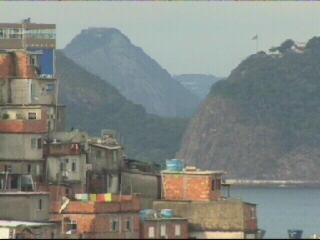The Violence of Rio
 The escalating violence in Brazil's gang-ridden favelas prompted Brazilian Premier Lula da Silva to launch a $3bn crackdown in early 2007. But strangely, the policy was greeted with a storm of disapproval from the country's embattled urban inhabitants.
The escalating violence in Brazil's gang-ridden favelas prompted Brazilian Premier Lula da Silva to launch a $3bn crackdown in early 2007. But strangely, the policy was greeted with a storm of disapproval from the country's embattled urban inhabitants.
For Fernanda da Silva, the favelas are generally decent and safe; the only time he is afraid is when the police carry out their raids, "The police are very violent. They don't respect citizens. Those who get killed are always the innocents." For many like Fernanda, the police tactics are an extension of a government which simply doesn't care, "Of course we want the government to intervene, but it must also be an integral part of poor communities."
It is this impulse which has led to the development of a third power base in Brazilian local politics. Police, ex-police and fire-fighters have formed militias to protect their areas; their parallel social and judicial systems have established control in over 100 favelas. "One of the greatest advanatages is that when the milita overtake a favela there are no more invasions by the police, no more shoot outs or stray bullets." Their provision of essential services and community initiatives only enhance their popularity.
But many of these militas rule with an iron fist, "we have been told that if they see us out in the street after 10pm they are free to shoot," one man tells us. There are also reports that enormous profits are being reaped from control of gas and water supplies.
It is clear that if the Brazilian government is serious about wresting power in the favelas from drugs cartels and gangs, they need to come up with an effective alternative welfare scheme very quickly.
FULL SYNOPSIS

